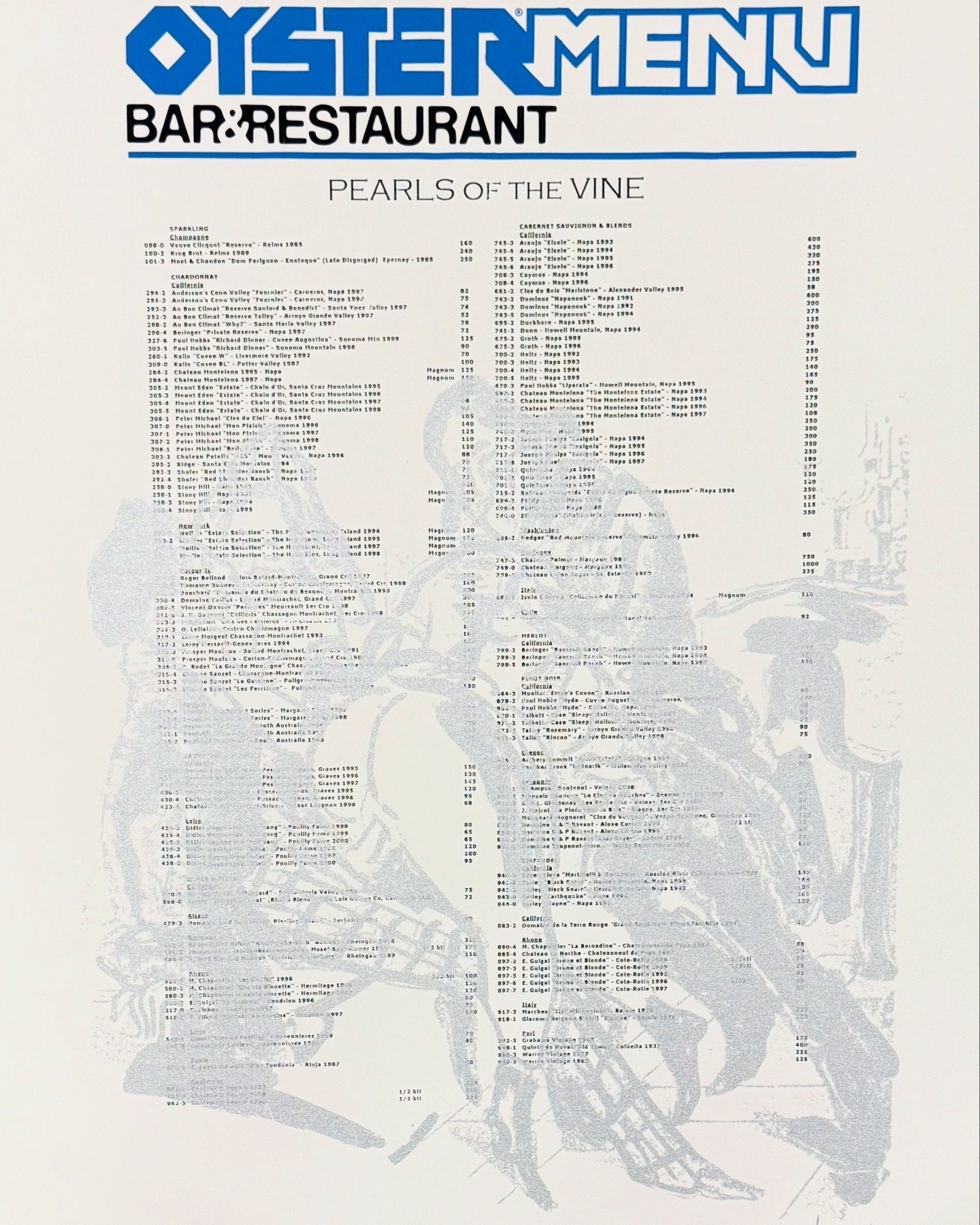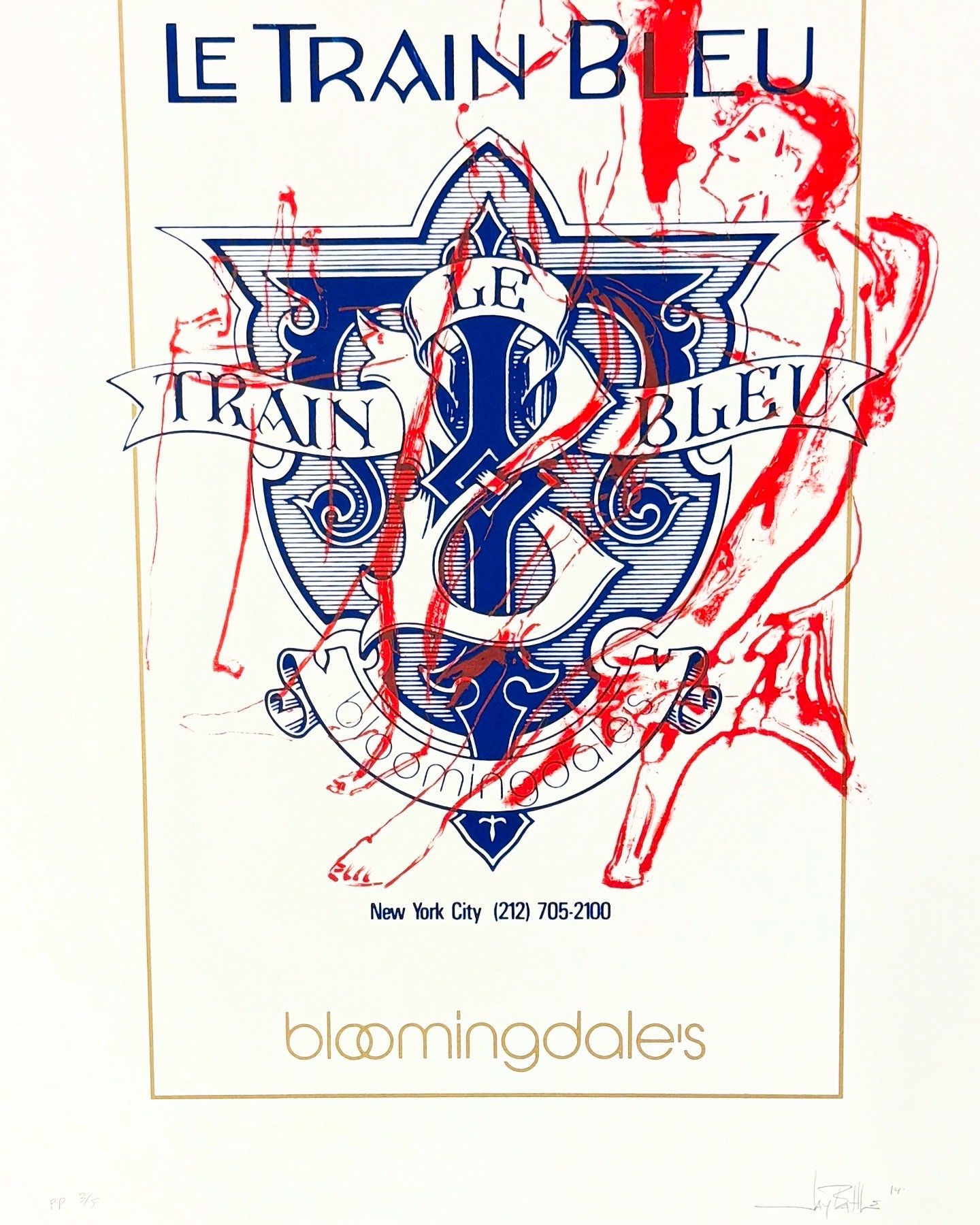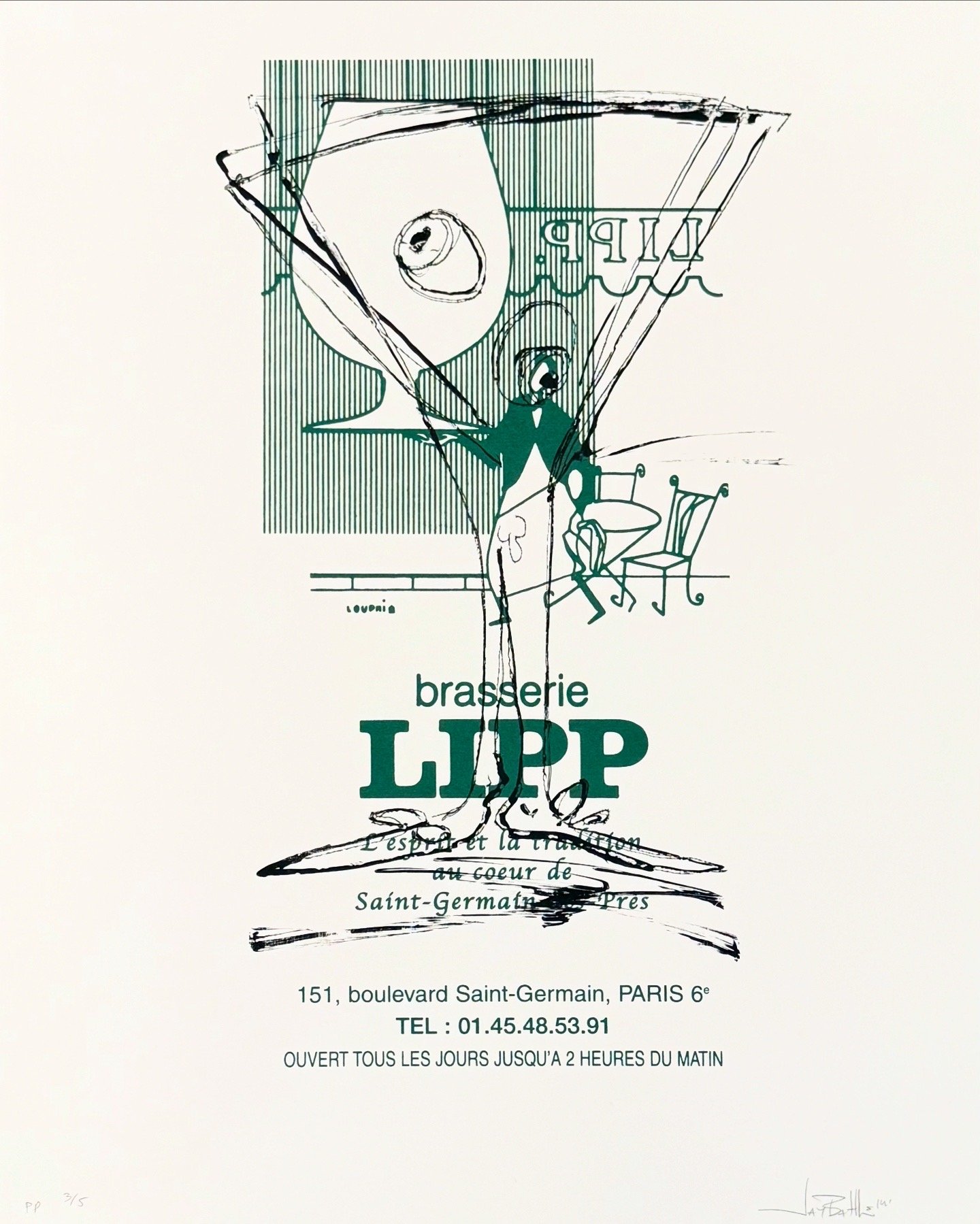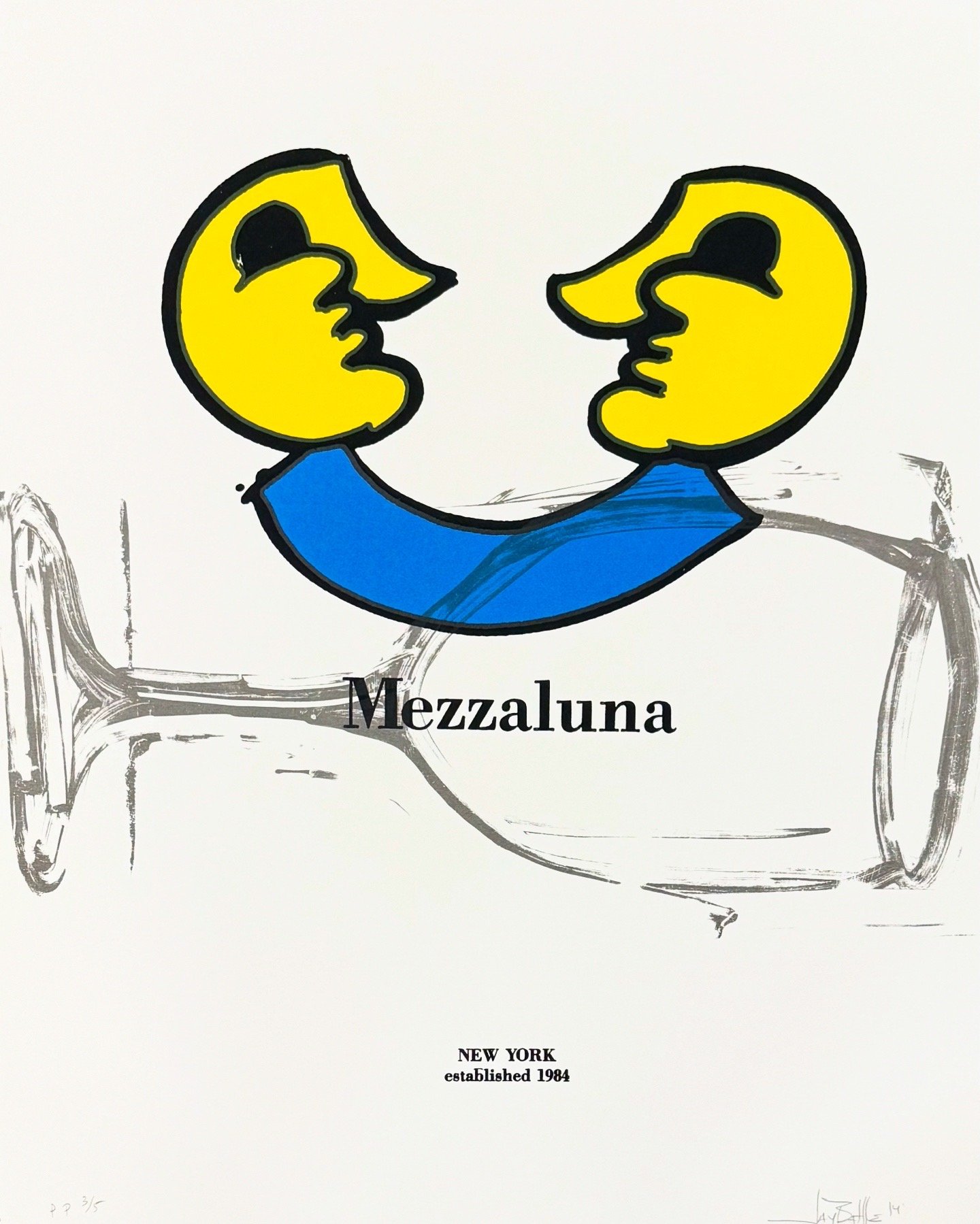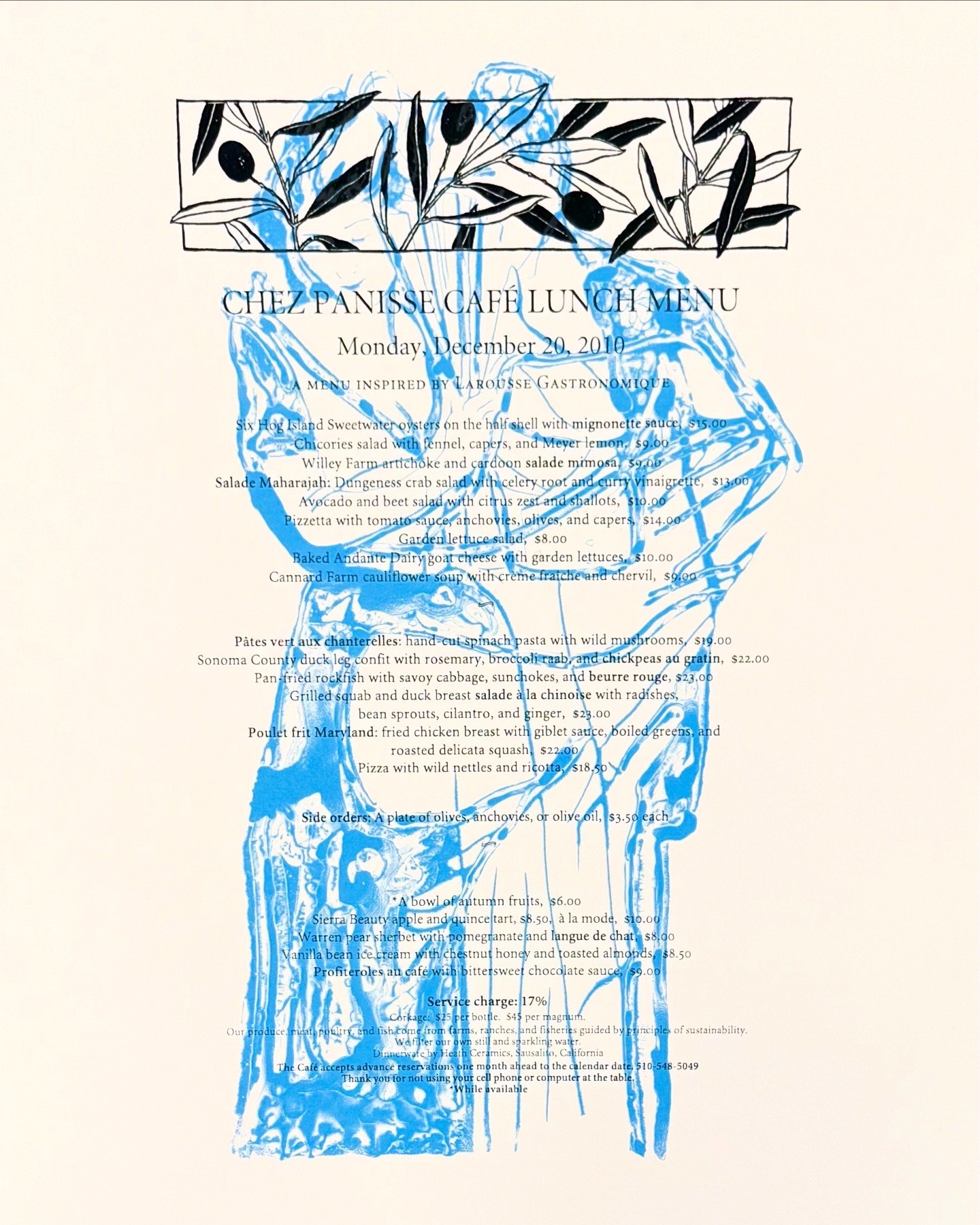 Image 1 of 1
Image 1 of 1


Chez Panisse - Jat Batlle
Chez Panisse
From the Selection of Menus: RSVP, VIP, RIP portfolio (4 of 12)
“Chez Panisse” is Batlle’s tribute to the cradle of California cuisine and the slow food movement. Alice Waters’ Berkeley restaurant — famed for its seasonal menus and unpretentious philosophy — becomes here a mirror for Batlle’s own artistic practice: rooted in tradition, filtered through experimentation.
The piece hums with organic rhythm. Soft color fields, hand-drawn fruits, and earthy textures give the impression of fields just harvested or a dish plated moments ago. Faint menu lines blend into one another, suggesting a narrative that’s less about ingredients than intention. It feels handwritten, honest, and alive.
Yet Batlle’s subtext persists. Amidst the reverence lies critique — of elitism masquerading as simplicity, of access, of how taste is curated and consumed. “Chez Panisse” is both homage and interrogation, a quiet storm of image, memory, and ideology.
Chez Panisse
From the Selection of Menus: RSVP, VIP, RIP portfolio (4 of 12)
“Chez Panisse” is Batlle’s tribute to the cradle of California cuisine and the slow food movement. Alice Waters’ Berkeley restaurant — famed for its seasonal menus and unpretentious philosophy — becomes here a mirror for Batlle’s own artistic practice: rooted in tradition, filtered through experimentation.
The piece hums with organic rhythm. Soft color fields, hand-drawn fruits, and earthy textures give the impression of fields just harvested or a dish plated moments ago. Faint menu lines blend into one another, suggesting a narrative that’s less about ingredients than intention. It feels handwritten, honest, and alive.
Yet Batlle’s subtext persists. Amidst the reverence lies critique — of elitism masquerading as simplicity, of access, of how taste is curated and consumed. “Chez Panisse” is both homage and interrogation, a quiet storm of image, memory, and ideology.

